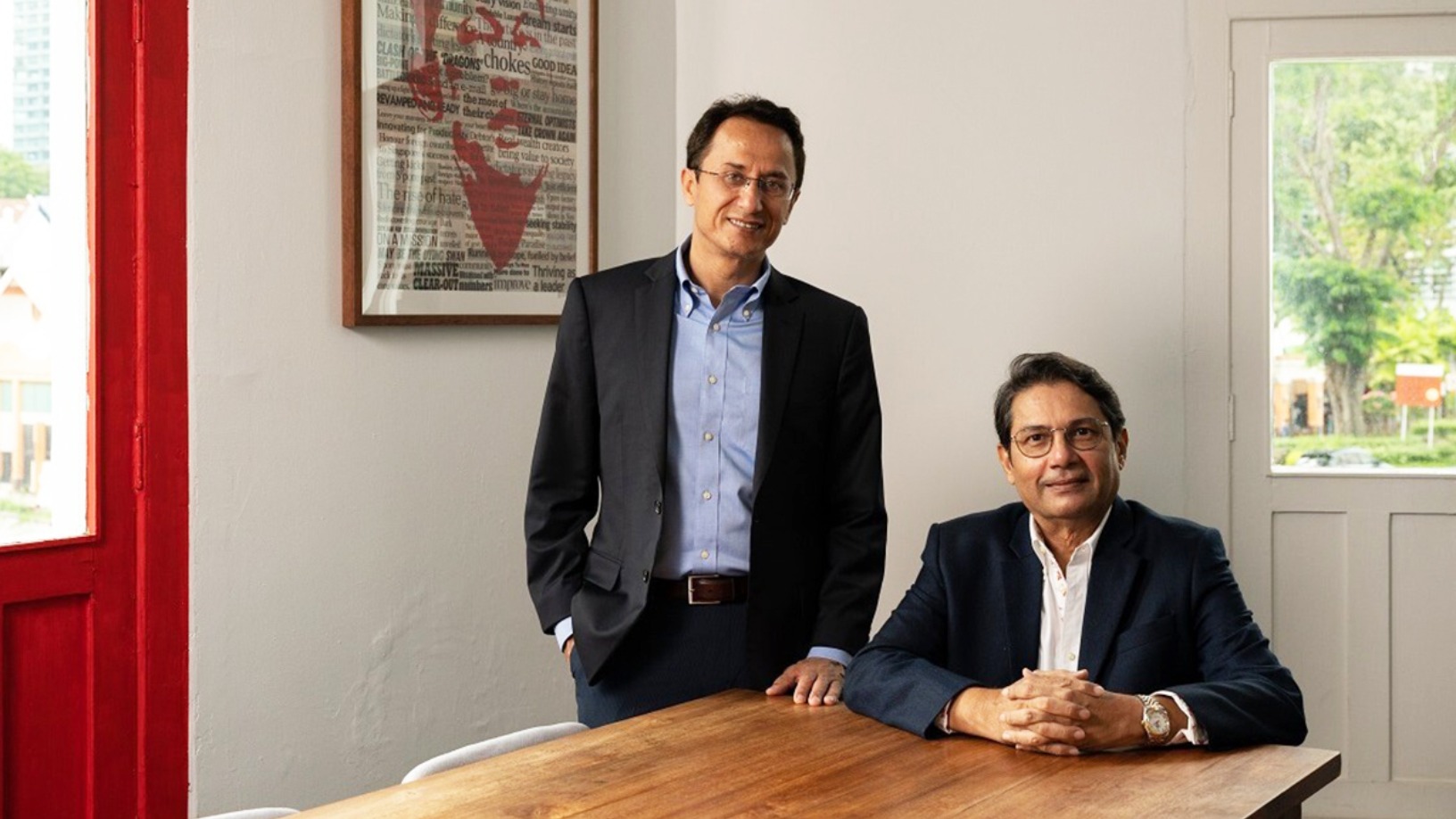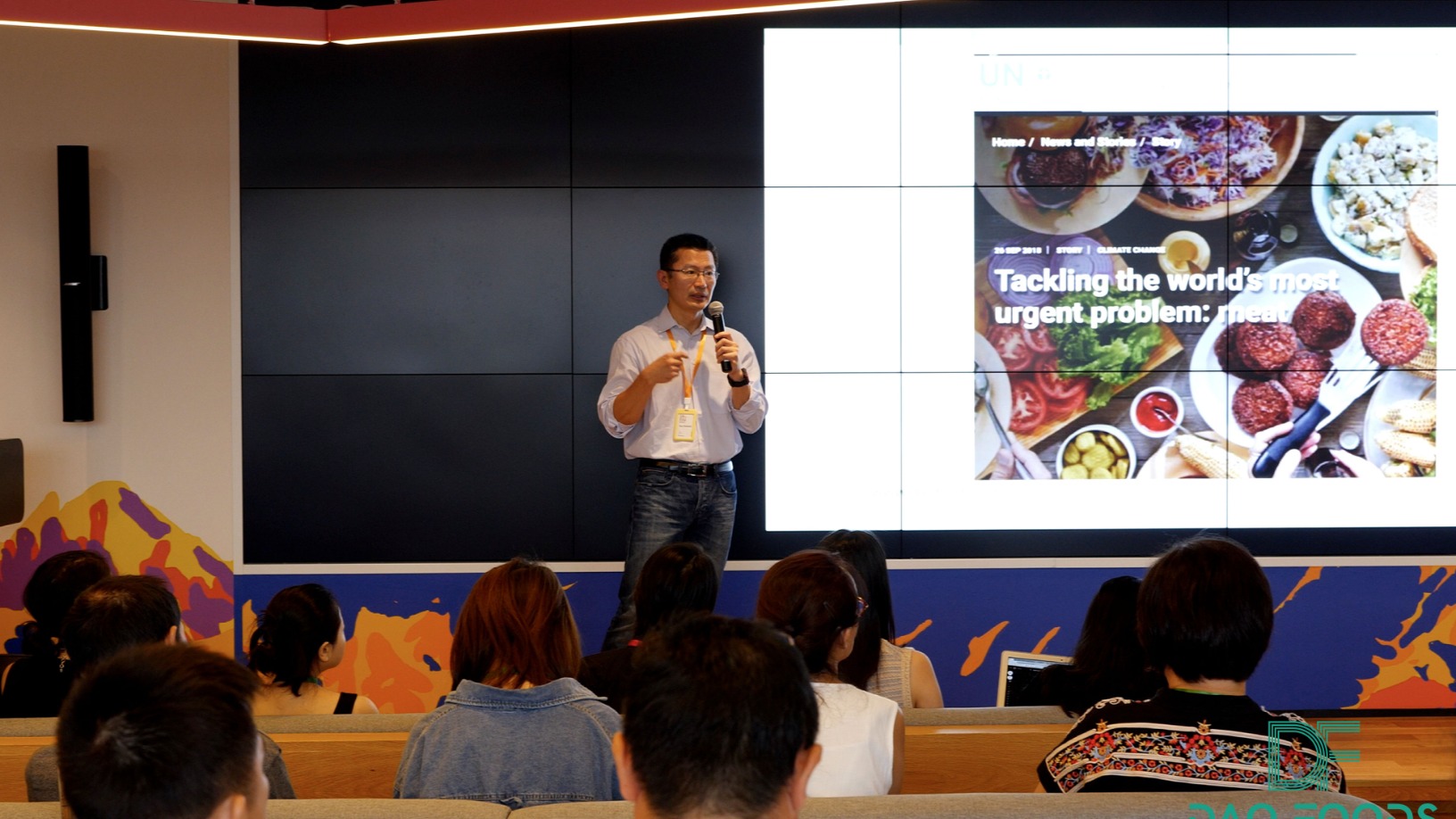After selling his last company in 2016, Gautam Godhwani chanced upon the field of animal welfare, a cause he found close to his heart. A successful serial entrepreneur and investor in IT for over two decades, Godhwani knew well that technologies could make a huge difference in solving the world’s problems – and that’s where he zoomed in on alternative proteins.
“When I looked at alternative proteins, I saw a set of technologies and products that could not only make an impact on animal welfare,” he told CompassList in a recent interview. “It also has a very broad impact footprint, from climate change [to] resource usage with land.”
In September 2020, Godhwani and his longtime friend, Jayesh Parekh, co-founded Good Startup in Singapore to invest in alternative proteins. Also a serial entrepreneur and a prolific angel investor in the IT and social impact sectors, Parekh had co-founded Sony Entertainment Television together with Sony Pictures Entertainment, and was Managing Partner of Jungle Ventures based in Singapore.
In July this year, Good Startup announced the latest close for its debut Good Protein Fund at $26.5m, after seven months of fundraising. It attracted mostly individual investors and family offices from around the world, including Symphony Asia Chairman Anil Thadani and Kim Seng Holdings Chairman Tan Kim Seng. Good Startup plans to use the capital to invest in 32 startups within four years, with a ticket size of $250,000 to $1m.
So far, it has a portfolio of 12 companies, including Eat Just, the first in the world to sell cell-based meat; cell-based human milk producer TurtleTree Labs; Novel Farms, which uses 3D bio-scaffolding technology to produce whole muscle proteins; and pea-protein dairy alternative firm Ripple Foods, which last week raised $60m in Series E funding.
The Good Protein Fund invests in early- to late-stage startups, but about 80% of its funds will go to those in the early stage. Good Startup expects to exit from its portfolio companies within four to six years. “The vast majority of the companies will likely exit via acquisition, though I think we'll see some in the portfolio go public as well,” Godhwani said.
Today, we are at just 1% of the conventional meat market, but the number is expected to be about 10% by 2030
Godhwani is no stranger to building businesses that get acquired. Godhwani used to be CEO and co-founder of AtWeb, a Web tools company with 1m small business customers, which was acquired by Netscape/AOL in 1998. His last venture, Simply Hired, a job search engine, was acquired by Recruit Holdings in 2016.
“We really look forward to helping companies with operational issues, whether from IP protection to organization design, recruiting, fundraising strategy or manufacturing scaleup. Those are the areas where we believe we can help because fundamentally this comes down to execution,” he said.
Future food system
With its mission of “removing animals from the food system,” Good Startup invests in plant-, cell- and microorganism-based proteins, but not insect protein.
“It doesn't mean that those [insect protein startups] aren't great businesses. It's just that we believe that the technologies using plants and microorganisms themselves represent the most sustainable opportunities in front of us,” Godhwani said.
Among the three preferred segments, he believes cell-based substitutes have the greatest market potential. “If it [cell-based substitute] can reach price parity, then you have a product that is molecularly identical to conventional meat, without contaminants or bacteria or antibiotics, which is very unique and highly desired,” he said.
Meanwhile, he expects to see hybrid solutions, where animal cells contribute to the taste of meat and plants to the nutritional profile, attracting more consumers. Still he concedes: “It’s very difficult to imagine [such animal-plant hybrid products] when you're sitting at the beginning of this revolution. It’s like sitting in 1995, looking at the Internet and trying to predict Amazon Web Services or artificial intelligence.”
He notes it's also difficult to say how alternative proteins will fare against conventional products in terms of market share, particularly as they involve different technologies at various stages of development.
“Today, we [alternative proteins] are at just 1% of the conventional meat market, but the number is expected to be about 10% by 2030 and between 30 and 60% by 2050,” said Godhwani, pleased that data from industry reports also supports his forecast.
Innovation needs to occur not just with end consumer products, but also in the supply chain
“Once you get to a 30–60% kind of level, alternative proteins in fact simply become mainstream,” he added. “Over a longer period of time, we will see a continually declining share of animal products, and then we’ll see animal products become a niche offering.”
Innovation, not scaling, problem
To get there, Godhwani sees taste and price parities as critical drivers for consumers’ switch to alternative proteins. But businesses can’t achieve them by simply putting existing solutions together in a different way, or scaling to the point where the prices come down.
“We don't have so much a scaling problem, but an innovation problem,” he said. “We need to innovate our way into taste and price parity, and that innovation needs to occur not just with end consumer products, but also in the supply chain.”
Godhwani believes businesses will reach either taste parity and/or price parity for different products in different markets at different times. “This will be a spectrum that starts to happen over the next one to two decades," he added.
“Today, we have consumers that are switching to alternative proteins, even if they have to compromise on taste and price, because they care about either health or animal welfare or sustainability,” he said.
“Over time, when we do reach taste and price parity, you will have a set of products whose value proposition is actually superior to conventional alternatives." These products won’t be merely similar to conventional meat, but would offer something arguably better – for consumers’ health, for animals and for the planet, he added.
For now, though, the most common strategy among startups in the sector is still to mimic the taste of meat. “Usually a startup will decide that going after an existing market, with consumers that already are demanding a certain product, it would be better to create a better product market fit than trying to invent something entirely new.”
Despite the near-term focus on reduplicating known products, Godhwani reckons greater innovation leading to unique products will emerge. This is among the reasons why he believes the alternative protein sector will continue to innovate, even after taste and price parity – the industry holy grail – are achieved.
“They will move past conventional alternatives, challenging as that will be,” he said.
Singapore, alternative proteins’ gateway to Asia
After having spent most of his career in Silicon Valley, Godhwani chose to move to Singapore to start Good Startup for a number of reasons. “Its government is serious about introducing alternative proteins there for food self-sufficiency,” he said. Also, the city-state is increasingly seen as the gateway to Asia for alternative proteins.
For foreign companies are looking to expand to the region, for manufacturing or distribution, Singapore is likely to be their first choice of destination. “It means that Singaporeans will have access to those products,” he said. “It’s the only location in the world where there's regulatory approval to retail cell-based meat.”
All these are likely to pave the way for mainstream adoption of alternative proteins in Singapore. “Although it’s only one type of meat by one company, the rest of the world is looking to [Singapore] as one of the handful of hubs where alternate alternative protein innovation is very actively going on,” Godhwani added, referring to Eat Just’s lab-grown chicken sold in the Asian state.
As a fund located in Singapore, Good Startup can support the sector’s growth in Asia, a market that in his view offers the greatest potential for alternative proteins. “Asia is so significant, and very likely to play a role in an [alt-protein] company’s life cycle, whether it’s in supply chain, R&D, manufacturing or scale-up and distribution. We believe we can be helpful here.”











